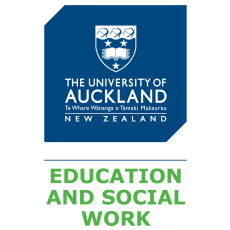Teachers use technology to connect online, with peers, experts and communities.
This Thing will help you connect with NZ education online communities to share ideas, ask questions and stay up to date on the latest trends in education.
Hear how teachers can use social media to connect in this video of Suzie Vesper at Core Education.
Twitter is a social networking service that lets you read and send short 140-character messages called tweets.
It’s like virtual staffroom where you can find resources, get and give advice. You can search for topics of interest.
#edchatNZ is a great way for NZ teachers to meet virtually on Twitter fortnightly on Thursdays 8.30pm during term time. Find out about edchatNZ and see founder, Danielle Myburgh describe the aims in the video below:
Enabling e-Learning Twitter slow chat offer a week-long chat within Twitter. These facilitated discussions run from Monday through to Sunday with a new question posted each week day (no questions in the weekend, but the discussion can continue). You can respond to the questions and follow along with the discussion using the hashtag #eelslow. The first chat started on Monday 14 March. For more information about the slow chat, have a look at Twitter slow chats.
Teacher and blogger Craig Kemp has made this useful guide Mr Kemp: 10 Steps to Creating the Perfect Educational Twitter Account.
Alec Couros explains how to use Twitter effectively in the classroom below
Twitter provide this step-by-step guide for signing up to Twitter.
Online Learning Communities
Collaborating through discussion in professional online communities is how many NZ teachers, school leaders, and facilitators connect, share experiences, and learn together.
Some examples of online learning communities include:
The Virtual Learning Network (VLN), He kōtuinga ako ā-ipurangi, where you can use the The Learning Exchange and/ or VLN Groups to connect.
In the video below, Josie Woon, Assistant Principal at Takaro School, talks about how and why she uses the Virtual Learning Network.
Pond was a portal for NZ educators to share lesson plans and resources. You can follow other educators, share content, opinions and feedback. Faculty student teachers are welcome to join.
Teachmeetnz, lead by teacher, Sonya van Schaijik, offers a virtual way for New Zealand teachers to reflect on, record and share learning. They use a wikisite, Google Hangouts and Twitter.
ECE Online is a learning community hosted by CORE Education. It is open for everyone to access, read and contribute to, so that a wealth of resources is built for early childhood education.
Te Kete Ipurangi (TKI) has a communities feature which includes a number of mailing lists that you can join. Mailing lists are a great tool for sharing information and views on relevant topics with the posts going straight to your email inbox. A few of the more popular ones are listed below:
- Media Studies Mailing List
- Arts Online Mailing List – for primary and early childhood teachers, and for secondary school arts coordinators.
- ESOL Online – open to all teachers of ESOL. There is a Primary ESOL Mailing List and a Secondary ESOL Mailing List.
- Enabling e-Learning – the Ministry of Education’s online ‘hub’ for ICT-related education resources and programmes in New Zealand.
- Gifted and Talented Mailing List
- Literacy Online – has a Primary Literacy mailing list and a Secondary Literacy mailing list.
- Musicnet Mailing List
- Rārangi Mēra – Health Promoting Schools mailing list is open to interested educators and health professionals.
 Try this
Try this
For this Thing, start to build your own Professional Learning Network (PLN) and connect with one or more of the online learning networks available to you.
Join Twitter and share something about #23teaching.
 Explore further
Explore further
Top 100 Twitter Tools for Educators starts with a great section on some tools that can be used to take control of your feed, schedule posts, and manage followers. Many teachers in NZ use TweetDeck or Hootsuite.
The Global Digital Citizen Foundation offers a downloadable Twitter-Tastic Teacher’s Guide which includes resources for developing your Professional Learning Network (PLN).
10 ways teachers can use Twitter for professional development by Educational Technology and Mobile Learning outlines how to use Twitter to connect with the wider educational community.
Todd Nesloney explains why he thinks teachers should connect online in his blog.
Edutopia have some 5 great tips for new teachers who want to become connected educators and the Five-minute film festival: Twitter in education has a list of videos showing how Twitter can be used to create a network of educators.
Josie Woon talks about the potential of Enabling e-Learning community groups to impact on teacher practice.
 Credits
Credits
Header image: NetMapper / Flickr / CC BY NC 2.0
Icons: Everaldo Coelho and YellowIcon / GNU Lesser General Public License
This post is licensed under a Creative Commons Attribution-NonCommercial-ShareAlike 4.0 Unported License.
23 Teaching Things is by Lucie Lindsay and Bronwyn Edmunds at the University of Auckland’s Faculty of Education and Social Work.


Comments are closed.